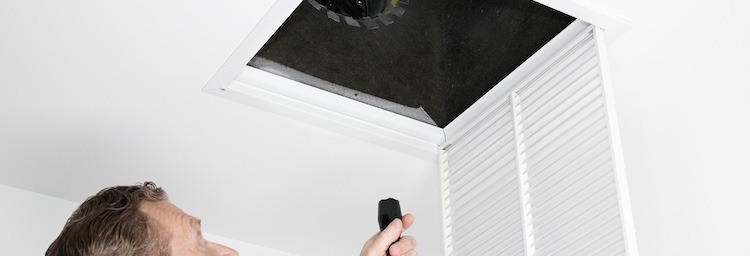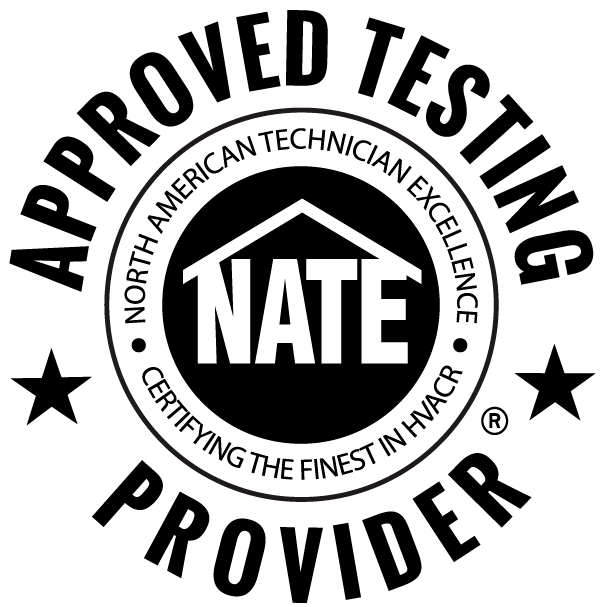Animals can be adorable. Anyone with a pet can tell you that. But it’s a completely different story when you’re dealing with a rodent in your air ducts. Not only is it disgusting to think of mice or rats mingling around your household, they also carry with them plenty of diseases and can eat through your home’s insulation and electrical wiring. And if you have pets, be aware that they could get infected with diseases if they are bitten by a flea that feasted on a rodent first.
So what can you do to protect your home, your family, and your HVAC system?
Signs there’s an animal stuck in your AC
Confirming that there are rodents in your air ducts is pretty easy: If they’re alive, you’ll hear scratching sounds inside your walls or above your ceiling as they scurry around (*shudder*). If they’re dead, you’ll get the unpleasant experience of having the decaying smell fill up your home (especially when turning on the heater). If they’ve gotten into your closets, you’ll notice that some of the items you have in storage have been chewed on. And of course, the most obvious of all signs: mouse droppings.
If you’re dealing with rats, you also may see yellow stains seeping through your ceiling. Yes, dearest readers. That is rat urine. If you’ve been lucky to bypass that experience but have seen what appear to be little nests made out insulation in your home’s crawl space, you have rodents in there.
How do animals get into an AC system?
There are so many ways for these little critters to get into your home: Through old pipes, the sewer system, electrical lines, dryer vents, or through your air conditioner’s condenser unit. The older your home, the more likely they are to get inside.
That said, don’t be fooled into thinking that if you live in a newer home, you’re 100% safe. Mice and rats can easily chew their way in if they find even the tiniest unsealed access.
How to get animals out of your air ducts?
If you have a strong stomach to do it yourself, go get a flashlight, gloves, a screwdriver, mouse traps, and bits of food to lure the critters to the traps. Make sure to shut off power to your AC system before getting started (in addition to turning off the thermostat, also turn off the power breaker that supplies your air conditioner).
Remove AC vents with a screwdriver and place the mouse trap with either peanut butter or whatever little piece of food you don’t mind leaving up there. Use a flashlight to look for mouse or rat droppings. If you see a prevalence of them at a specific duct, leave more traps in that area. Check for any trapped mice daily. Make sure to wear gloves. Once you find one, seal it in a ziploc bag before throwing it out.
While you may be tempted to leave rat poison to help you deal with the issue, we do not recommend it, since it could leave you with rodents who will keel over and die deep into your air ducts and decompose in a hard-to-reach location.
If you’d rather not deal with it yourself, an HVAC technician can get the job done for you.
How to prevent animals from getting into your AC system?
The best way to prevent rodents from crawling into your HVAC system is to ensure that your ducts are completely sealed. You can do this with a home energy audit, which you can either do yourself or hire a professional to do it for you. Not only is this convenient because it’ll keep mice and rats out, but it’ll also optimize energy efficiency in your home and likely lower your electricity bills.
Clean the area around your home’s condenser unit regularly. Trim vegetation around it and clear it away. Shut off the power to your AC, remove the cover from the unit, and hose down the fins. Schedule regular maintenance of your HVAC system so that technicians can nip a problem in the bud. Doing so will ensure cleaner ducts, better air conditioner efficiency, and a longer lifespan for your AC.
Contact Colman Heating & Air for AC Service in Brevard County
At Colman, we understand that sometimes, AC issues happen during the most inconvenient times. This is why we have a 24/7 AC emergency line. Call us if you need assistance ASAP or to schedule routine HVAC maintenance to prevent pest infestations.
24-HR Emergency Service (321) 269-4565







Leave a Reply